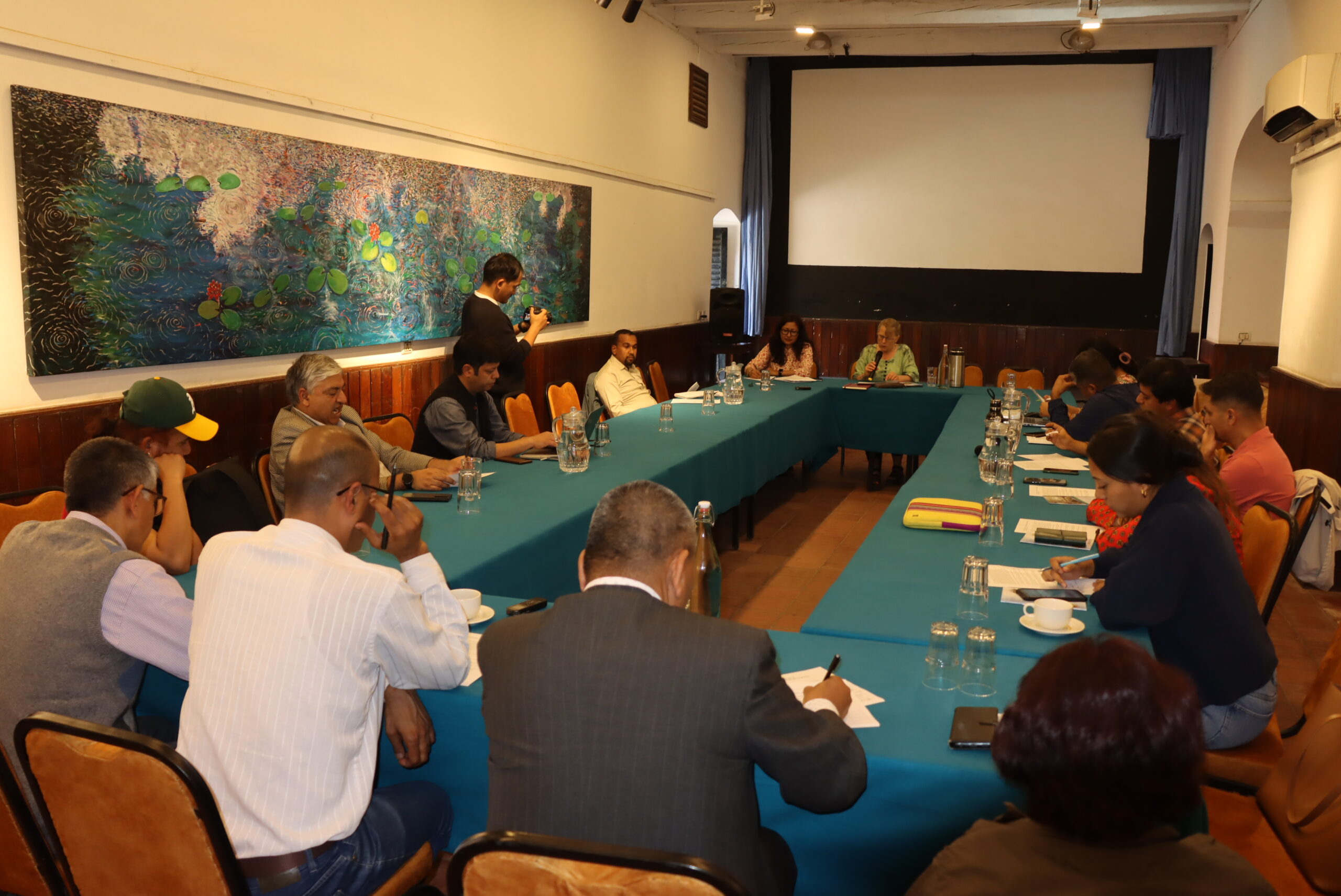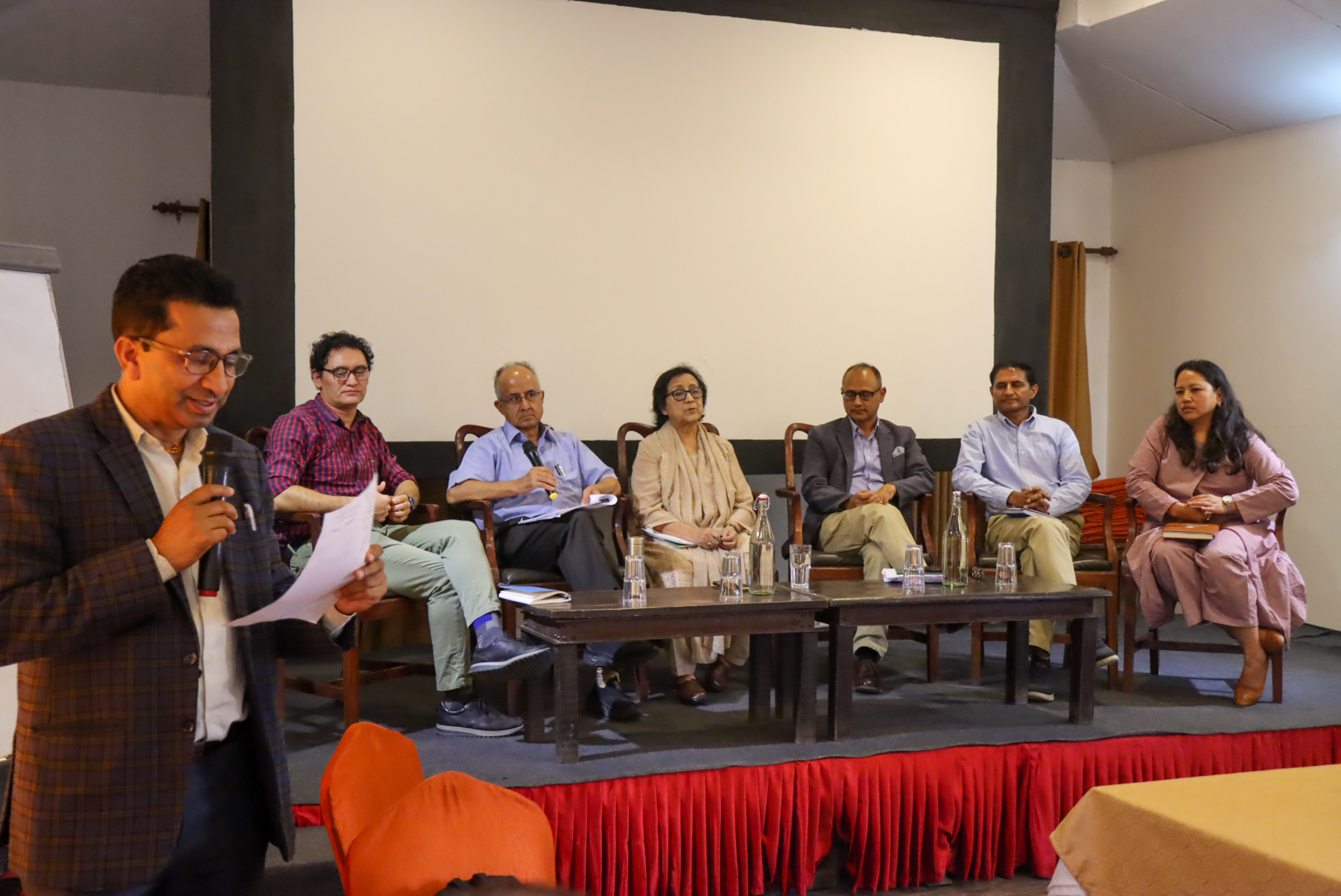26 Feb 2024
Southasia Institute of Advanced Studies (SIAS) organized an event on sharing findings and learnings of its ” Co-producing a shock-resilient business ecosystem for women-engaged enterprises in Nepal” (CREW) project in Sandikharka Municipality of Arghakhanchii on 26 February 2024. The event was chaired by Ms. Mishra Acharya, Deputy Mayor of the Sandikharka Municipality. While, Mr. Jib Narayan Koirala, chair of the District Coordination Committee, graced the event as a distinguished guest, Mr. Krishna Prasad Shrestha, Mayor of Sandikharka Municipality was the special guest of the workshop. The sharing workshop was attended by stakeholders including government and non-government organizations, financial institutions, women farmers, and farmers’ marketing group. Mr. Rajendra Bhattarai, Agriculture Officer of the municipality facilitated the event.
Mr. Puskarnath Banjade, chairperson of Sandikharka Agriculture Marketing Group welcomed all the participants and shared historical experiences of haat bazar management in Sandhikharka. He appreciated the efforts made by SIAS to create a platform for deliberative discussions, that ultimately facilitated the reopening of haat bazaar. In his remarks, Mr. Banjade emphasized the importance of municipal support in ensuring the proper management of local and small farmers in haat bazaar.
Following this Dr. Maniram Banjade, Principal Investigator of the CREW project, delivered a comprehensive presentation, outlining the background and key research objectives. He elaborated on the themes of research engagement- gender-based constraints, local agriculture markets, gender-responsive budgeting, women champions, strengthening the capacity of women agricultural cooperatives, and enhancing the technical know-how of farming. Dr. Banjade shared significant insights, including the identification of policy gaps and overlaps in policies targeted to women farmers and entrepreneurs, challenges in translating policy into practice, program duplication, and lack of technical experts at the local level for effective program implementation. In conclusion, Dr. Banjade emphasized the necessity of establishing connections between agri-cooperatives and markets, implementing proper database management at the local level to facilitate evidence-based policymaking, reducing program duplications, and conducting feasibility studies before a mega investment in infrastructures such as cold stores.
During the discussion session, one of the participants highlighted the need for local government support to enhance the risk-bearing capacity of the farmers while another urged to promote the local crop varieties. Similarly, small-scale women farmers highlighted the need to improve the infrastructure of haat bazaar. The Mayor of Sandikharka Municipality highlighted the significance of providing seeds and fertilizers to the farmers on time rather than investing in subsidies and grants. He further requested farmers to diversify their agriculture production and start cultivating crop species like ginger, turmeric, coffee, and flowers that cannot be harmed by monkeys.
Similarly, the chair of DCC appreciated the efforts by SIAS to create awareness of gender-sensitive budgeting and gender sensitization at the Palika level. He suggested the researchers to provide clear and specific recommendations to address the identified issues. Lastly, the Deputy Mayor of Sandikharka Municipality highlighted and appreciated the activities undertaken by SIAS to address gender-based constraints and promote women’s entrepreneurship. She ended the event stressing the need for transparent mechanisms at the local level for the formulation, budgeting, and implementation of programs that are targeted at women.




